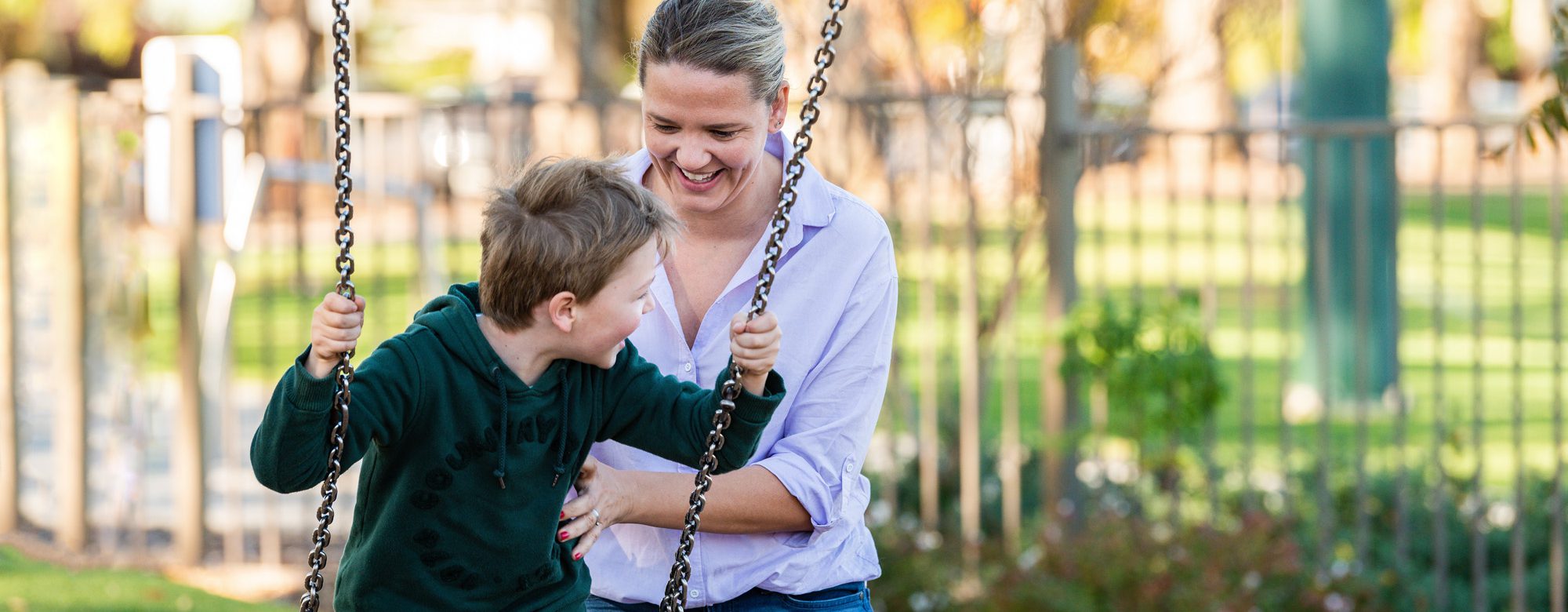Military life is unique. While many other occupations might involve long or frequent travel, moving house, or working in dangerous environments, only those connected to the military experience all of these on a regular basis.
The impacts of military service extend beyond the member in uniform. The entire family is affected by their loved one’s service, but there are many benefits to being a military-connected family, including:
- Opportunities for travel and adventure
- Getting to experience life in many different parts of Australia (and the world!)
- Enhanced personal resilience
- Independence
- Stronger communication skills
Despite their tenacity, Defence families experience significant impacts of military service with almost every facet of their lives and well-being impacted at some time.
Understanding ADF Members and Families
All ADF members are part of a family, whether this is a couple with children, a couple without children, a sole parent, or part of a broader family of parents, siblings, cousins, and so on.
Family members are a strong source of support for the member and the foundation from which they can build a successful career.
What are some of the challenges faced by Defence members with families?
The military member sits at the centre of the military institution and the family – both large ‘institutions’ which demand their time, energy, and identity. This can mean the member can feel a lot of pressure to ‘choose’ between the two and finding a balance can be tricky. Members have to navigate the time they spend on their work with the time and energy they give to their family. Managing these relationships through deployments and times when communication home is limited can be difficult.
Times of transition can also represent challenges, whether this is the member leaving the family for time away or reintegrating back into the home. Children and pets can be very sensitive to changes in the home environment, meaning these times are stressful for the whole family. Members might also have some concerns about being away from family members who are unwell or feel guilty about the additional load shouldered by family members during their absence.
What are some of the best ways to improve well-being for Defence members with families?
Members and families need to have a good understanding of each other’s needs and the impacts of military life for each other. Clear communication is a critical component of this.
Digital technology tools can also provide excellent opportunities to keep in contact with family at home. Social media allows families to send members videos and photos which helps to keep them up to date about what’s happening at home, as well as provide opportunities for video calls while they are away. This can also help with reintegration, as the member feels more familiar with the changes which might have occurred while they were gone.
Attempting to maintain boundaries between home and work life (where possible) can also help.
Understanding Defence Partners
Who is a Defence Partner?
The term Defence partner usually means the civilian spouse or partner of the ADF member. Despite not putting on a uniform themselves (though, of course, some partners are veterans or serving members too), partners experience many aspects of military life.
What are some of the biggest challenges faced by partners?
Some of the biggest challenges faced by partners are a direct result of their military connection, including deployments. Military family research shows many partners experience anxiety, loneliness, sleep disturbances and physical health changes during deployment periods.
Relocations are another significant aspect of military life which have a big impact on partners. Military families relocate every two years on average. Imagine having to re-establish yourself in a new community every second year. This might mean a new job, new medical providers, new routines, finding new schools for children and new vets for pets – let alone new friends and social connections.
Sometimes getting access to the right support can be challenging, especially for partners who don’t fit the ‘ideal’ military partner model – usually a woman in a relationship with a male serving member, married with small children under 10 years of age. This ‘ideal’ is unattainable for most, or, at best, is fleeting.
Partners have reported feeling pressured to show resilience and hide negative emotions like dependence, vulnerability, fright and worry.
This is also hard for families who don’t have children, or who otherwise can feel left out of programs designed for families with young kids.
What are some of the best ways to improve well-being for partners?
Research tells us that employment and strong social connections are two of the strongest predictive factors of partner well-being. That means employment opportunities for partners that are flexible enough to cope with the complex demands of military life but also utilise their skills and experience.
Finding friends and a local community who and can support the entire family is also important.
Understanding Defence Children
Who is a Defence child?
‘Defence children’ is usually a term used to refer to the dependents of military members and veterans.
What are some of the biggest challenges faced by Defence children?
Many Defence children show incredible resilience and admirable tenacity. Children of all ages are sensitive to disruptions to their normal routine, whether this is through the departure of a military parent on deployment, the reintegration of a parent back into the home after time away, or through moving house.
The response of the child to military life factors greatly depends on their age. Younger children tend to show signs of regression, including social, emotional and physical responses. Older children might have poor academic performance, lower self-esteem, behavioural issues, depression and anxiety.
Defence children might also experience gaps in their education experience and disrupted social connections due to frequent relocations.
What are some of the best ways to improve well-being for Defence children?
Defence children do best when supported by loving, attentive adults and a strong community – as do all children! Research shows that Defence children who are cared for and have strong connections with their parents (who are also coping well) tend to have stronger well-being. This is also true for Defence children who have teachers, educators, schools and peers who understand military life and can be flexible and understanding.
Parents, teachers and caregivers can also work to prepare Defence children for deployment, reintegration and relocation in age-appropriate ways.



